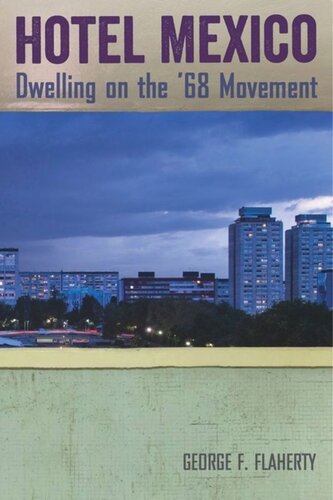

Most ebook files are in PDF format, so you can easily read them using various software such as Foxit Reader or directly on the Google Chrome browser.
Some ebook files are released by publishers in other formats such as .awz, .mobi, .epub, .fb2, etc. You may need to install specific software to read these formats on mobile/PC, such as Calibre.
Please read the tutorial at this link: https://ebookbell.com/faq
We offer FREE conversion to the popular formats you request; however, this may take some time. Therefore, right after payment, please email us, and we will try to provide the service as quickly as possible.
For some exceptional file formats or broken links (if any), please refrain from opening any disputes. Instead, email us first, and we will try to assist within a maximum of 6 hours.
EbookBell Team

4.7
76 reviewsIn 1968, Mexico prepared to host the Olympic games amid growing civil unrest. The spectacular sports facilities and urban redevelopment projects built by the government in Mexico City mirrored the country’s rapid but uneven modernization. In the same year, a street-savvy democratization movement led by students emerged in the city. Throughout the summer, the ‘68 Movement staged protests underscoring a widespread sense of political disenfranchisement. Just ten days before the Olympics began, nearly three hundred student protestors were massacred by the military in a plaza at the core of a new public housing complex.
In spite of institutional denial and censorship, the 1968 massacre remains a touchstone in contemporary Mexican culture thanks to the public memory work of survivors and Mexico’s leftist intelligentsia. In this highly original study of the afterlives of the ’68 Movement, George F. Flaherty explores how urban spaces—material but also literary, photographic, and cinematic—became an archive of 1968, providing a framework for de facto modes of justice for years to come.